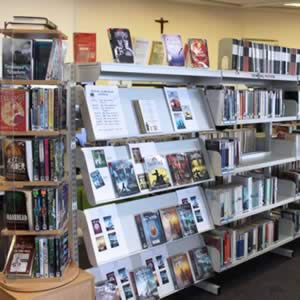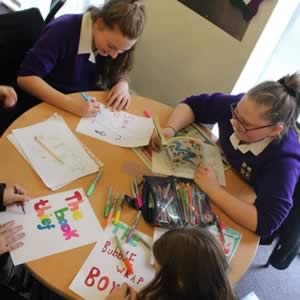Literacy & Numeracy
Literacy and numeracy are core skills, essential for learners to reach their full academic potential.
The National Picture
Why reading matters
There is strong evidence linking reading for pleasure and educational outcomes. We know that academic attainment is of vital importance and the benefits of reading for pleasure go beyond this and stretch throughout a person's life. In fact, the OECD report on education and reading listed reading for pleasure as one of the most important indicators of future success for children.
Research from The Reading Agency suggests that reading for pleasure can result in increased empathy, improved relationships with others, reductions in the symptoms of depression and dementia, and improved wellbeing.
The relationship between reading for pleasure and wellbeing is particularly interesting, with evidence showing a correlation between reading for pleasure regularly and lower levels of stress and depression. Reading also seems to reduce the risk of dementia, with frequent readers having lower incidence of dementia in later life.
In addition to the health benefits, reading for pleasure has social benefits and can improve our sense of connectedness to the wider community. Reading increases our understanding of our own identity, improves empathy and gives us an insight into the world view of others.
What we do at St Paul’s
Reading for pleasure is encouraged and promoted across the whole College in many ways, including:
Fortnightly Year 7 & 8 reading lessons in our library, one-to-one reading support sessions for struggling readers, tutor time reading, reading in English lessons, staff reading posters, literary displays, book groups, participation in book awards, celebrating World Book Day, author visits, and other reading themed events.
The Reading Agency research report specifically shows that the benefits of reading are more likely to be felt when reading takes place through free choice. The outcomes of reading will occur more often and more strongly if reading is enjoyable in the first instance. This is why the 'for pleasure' element of reading for pleasure is so important.
Reading is not just something that children should do in school; it needs to be an everyday part of our lives and something we choose to do at all ages.
Supporting children's reading at home
Studies show there are three simple things parents can do to that can encourage your child to read.
- Read yourself – seeing the adults around them reading is a great way to show children that reading is a positive activity.
- Surround your child with books – research shows that having books at home improve children’s willingness to read.
- Engage with your child’s reading – ask questions, show interest in what they are reading. Set aside some time to read with them.
Literacy & Numeracy Catch-Up Fund
The literacy and numeracy catch-up premium gives schools additional funding to support year 7 pupils who did not achieve at least level 4 in reading or maths at the end of key stage 2 (KS2).
This funding contributes to the provision of specific interventions aimed at raising students' literacy or numeracy:
- one-to-one 'early morning reading' sessions
- peer mentoring for maths
- literacy and numeracy support
- overstaffing in English, mathematics and science
- personalised curriculum
- personalised learning support (PLS) lessons
You may also be interested in how we use the pupil premium funding.






